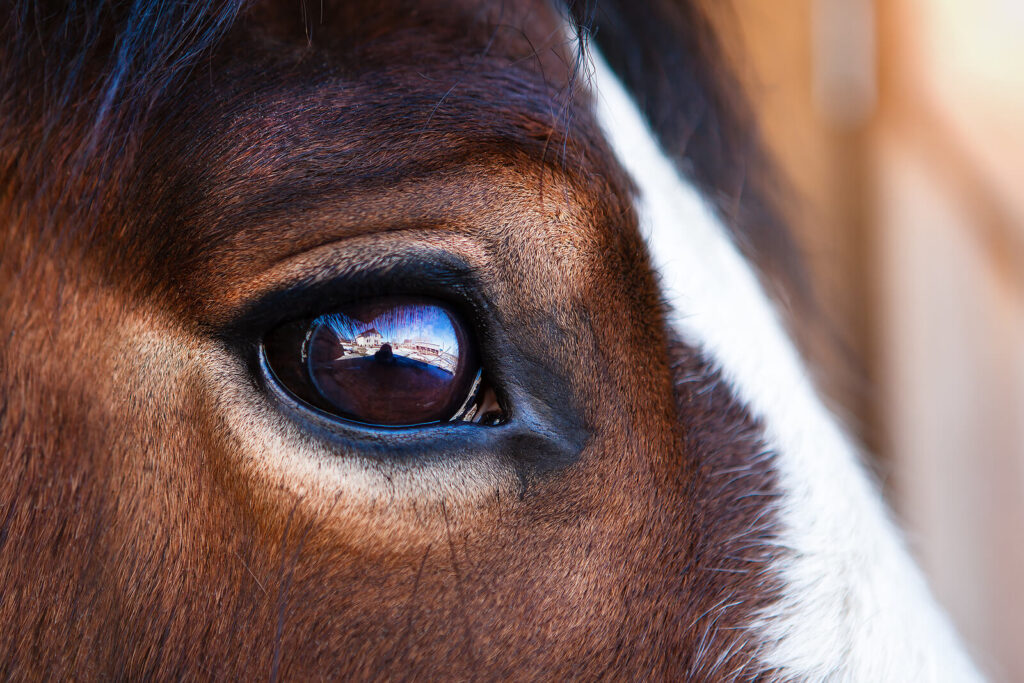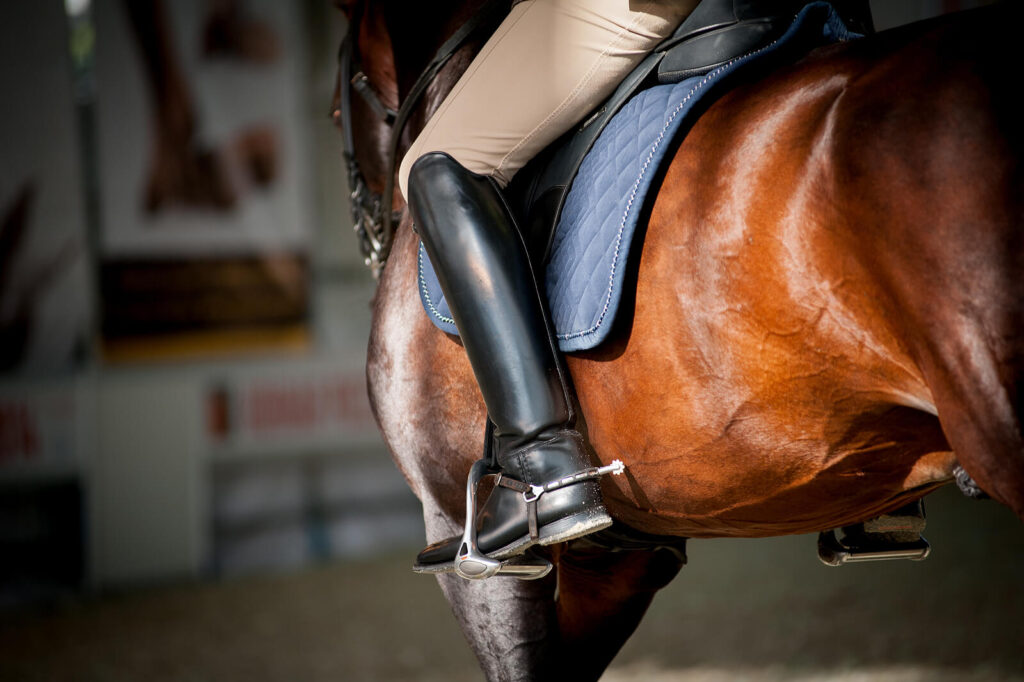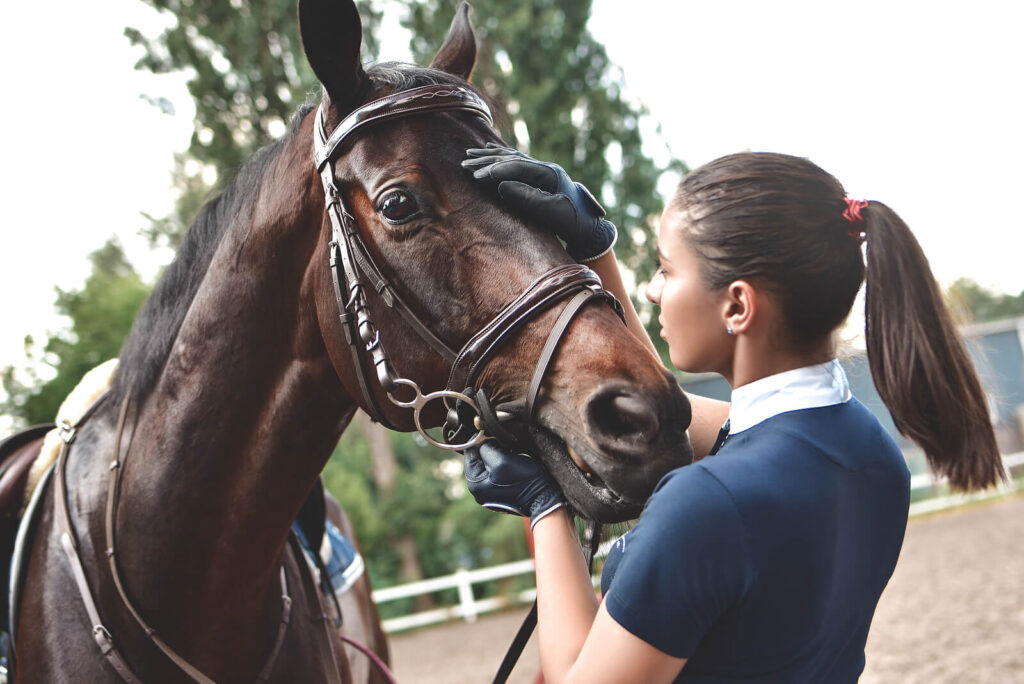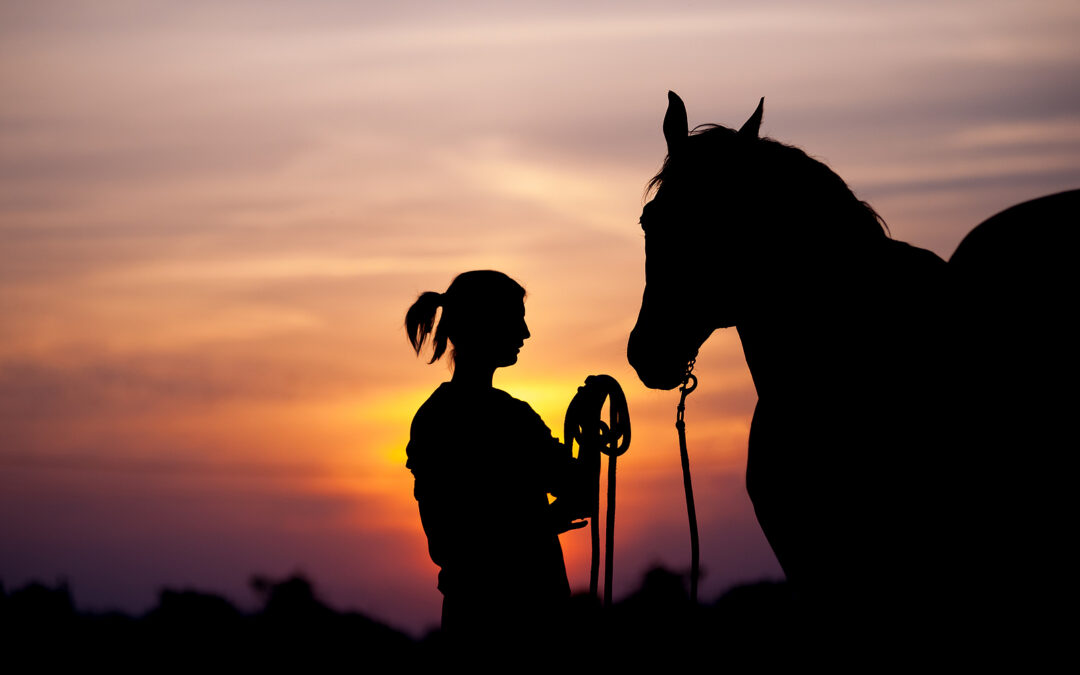During one of my many horse riding lessons, I told my trainer that practice makes perfect. She immediately corrected my statement to make practice permanent. She continued that perfection is not obtainable, and as such, you are merely chasing your tale and not making any progress.
 Thinking that we can get it perfect only fuels the desire to chase after something that really is impossible to achieve. It is the search for the El Dorado or the holy grail. Changing what we focus on improving things begins to change.
Thinking that we can get it perfect only fuels the desire to chase after something that really is impossible to achieve. It is the search for the El Dorado or the holy grail. Changing what we focus on improving things begins to change.
Riding takes a lot of mental work.
There is a lot to think about when riding: your hands, your feet, your core, the horse body, and the environment. This is without asking our horse or selves to do anything like jump 12 jumps in a specific order in a particular amount of time or jump eight jumps in a specific order at the same pace or on the trail; we have to make sure the footing ok and that any number of critters or cars will suddenly appear. If you are riding in a group, you will also be aware of the other members and what their horses are doing. This can be overwhelming. If you are showing a lot, the stress and strain of putting this exacting pressure on yourself can take a real toll.
As riders and people, we often expect things to be perfect, or, at the very least, we may become wholly devastated if they are not.
We head down a rabbit hole of self-doubt and self-criticism. If we shift the prescriptive to embracing imperfection or growth, we may find we have made our lives a lot easier. Embracing imperfection doesn’t mean settling for mediocrity; it means acknowledging that perfection is an illusion and finding beauty in the journey of growth and learning. It means celebrating the small victories – a smoother transition, a more balanced seat, a deeper bond with our horse – rather than fixating on the faults and failures.
Perfectionism can rob us of the joy of riding, turning something we love into a source of stress and anxiety. It can make us hypercritical of ourselves and our horses, eroding confidence and hindering progress.
Instead, let’s cultivate a mindset of self-compassion and patience. Let’s accept that mistakes are inevitable and essential for growth. Let’s focus on the process rather than the outcome, relishing in the moments of connection and harmony with our equine partners.
Embrace the learning process
Perfection does not exist. As stated earlier, it is like El Dorado or the pot of gold at the end of the rainbow. It is great to think about; however, the pursuit can leave you drained, lost, and unfulfilled. Reframing thoughts about perfection to something more concrete, i.e., sitting up taller, riding without stirrups, trotting up and down hills comfortably. Reframing it also to include our horse in the equation so notice how my horse feels. All of these change the focus from being perfect to being present. Yes, a little bit of mindfulness is always helpful. Instead of fixating on flawless outcomes, focus on the journey of improvement. Riding is an art that requires continuous learning and refinement. Embrace the process of growth, recognizing that every ride offers opportunities to learn and develop your skills.
Practice Self-Compassion:
 Be kind to yourself on your riding journey, recognizing that perfection is unattainable and everyone experiences setbacks and struggles. Practice self-compassion by treating yourself with understanding, patience, and acceptance, especially during times of difficulty or frustration.
Be kind to yourself on your riding journey, recognizing that perfection is unattainable and everyone experiences setbacks and struggles. Practice self-compassion by treating yourself with understanding, patience, and acceptance, especially during times of difficulty or frustration.
Recognizing that some downtime from the show is helpful gives us time to rethink what we want to accomplish. Showing promotes external validation and results and makes it much easier to lose track of values that are also important to us.
Constant showing and intense pressure to perform at 110% is hard for any rider without some downtime at home to regroup, focus on training, and ground oneself in perspective. At shows, we all rely too much on results for our self-esteem and lose track of other values.
Celebrate the little things
Let go of the mindset that only perfect rides count as successes. Celebrate the small victories along the way, whether it’s mastering a new maneuver, achieving better communication with your horse, or simply overcoming a fear or challenge. Acknowledging these milestones can boost your confidence and motivation. This is a sport we do because we love it and enjoy it. Celebrating the small things as well as the big things can help keep the joy in riding.
Learn from Mistakes:
Mistakes are inevitable in riding, but they are also valuable learning experiences. Instead of dwelling on errors or setbacks, view them as opportunities for improvement. Analyze what went wrong, identify areas for growth, and use them as stepping stones toward becoming a better rider.
Look for Growth
When we focus on perfection, we often forget about growing or changing. If you remember the first time you rode, you did not know anything, and yet I bet some of us expected ourselves to know everything. We often spend so much time looking at how far we have to go to be perfect that we forget to see how far we have come. It can be easy to forget we did not know diagonals or how to post. We did not know how to do anything, so looking at the things we are now good at, we diminish our accomplishments often because we do not think they are good enough or perfect all the time. Sigh, not helpful. I would challenge you to write five things you are good at or good at riding. Then, ask a friend who knows your riding to write five things you are good at. Good ahead, it’s fun.
Focus on the change the journey opens up thinking to respond to the horse and the environment. It allows us to see how far we have come. I suspect you will be surprised.
Prioritize Connection Over Perfection:
Building a strong bond with your horse should take precedence over pursuing perfection in performance. Focus on developing a trusting relationship based on clear communication, empathy, and mutual respect. Remember that the journey of riding is as much about the connection you share with your horse as it is about achieving technical proficiency.
Practice Mindfulness:
Cultivate mindfulness during your rides by staying present in the moment and attuned to your horse’s needs and responses. Avoid getting lost in self-criticism or worrying about what others may think. By being fully engaged in the experience, you can enhance your riding skills and deepen your connection with your equine partner.
This sport we do is so hard even when we are kind to ourselves. It is a sport of split-second decisions and demanding concentration. It is also about a beautiful, kind, generous horse. Horses are not worried about perfection. They will do their best and want to do what we ask. They give all they can when we ask and do not judge us. As always, we can learn a lot from a horse. They live in the moment. They relax when they are done. If we could do the same for them, focus on the moment, do our best, and let go of the rest, we may start improving in ways we did not think possible.
Set Realistic Goals:
 While it’s essential to set goals to guide your progress, ensure they are realistic and attainable. Break larger objectives into smaller, manageable steps, and celebrate each milestone along the way. By setting realistic expectations, you can maintain motivation and prevent feelings of frustration or inadequacy.
While it’s essential to set goals to guide your progress, ensure they are realistic and attainable. Break larger objectives into smaller, manageable steps, and celebrate each milestone along the way. By setting realistic expectations, you can maintain motivation and prevent feelings of frustration or inadequacy.
Seek Support and Guidance:
Don’t hesitate to seek support and guidance from experienced riders, trainers, or mentors. Surround yourself with a supportive community that understands the challenges of riding and can offer encouragement, advice, and constructive feedback. Remember that you don’t have to navigate the journey alone.
Perfectionism does not just show in riding; it is everywhere. Advertisers market to the perfect: if you buy this car, live in this neighborhood, eat this food, do this thing, whatever it is, perfection is achieved. At least until the next new thing shows up; this is how we sell things. The problem is the message of needing to be perfect or that achieving perfection is possible. So avoiding the message is challenging; however, if you want to learn ways of toning down the perfectionism in your riding or life, please get in touch with me to discuss.
Start Working with An Equine Sports Therapist in Richmond, VA
Riding horses is as much an art as it is a sport. It’s about communication, trust, and connection. And just like any form of art, it’s inherently imperfect. Every horse has its quirks, every ride has its challenges. So let go of the need to be perfect and embrace the messy, unpredictable, wonderfully imperfect journey of riding horses. In doing so, you’ll not only become a better rider but also find greater fulfillment and joy in the saddle. You can start your therapy journey with Gray Horse Counseling by following these simple steps:
- Contact me and schedule a free consultation.
- Check out my FAQs and read more about me
- Start feeling more mindful!
Other Services Offered with Gray Horse Counseling
Equine therapy isn’t the only service I offer support in addressing. This is why I’m happy to offer I am available for in-person help in Powhatan and online in Virginia. Other services at Gray Horse Counseling include individual therapy, anxiety therapy, group therapy, equine sports, clinical supervision, trauma therapy, and depression treatment. Check out my FAQs, read about me, and contact me today to get the help you deserve!

